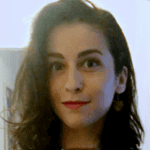Profile
Moira Taylor
-
About Me:
I live in a small market town about an hour from work with my husband, two teenage children and our cockerpoo. My son is doing a T level in Agriculture and my daughter is doing her GCSEs and is a keen football player. I don’t seem to ever quite have time for hobbies apart from walking the dog! I do however love it when we all go for a walk or watch a film or TV programme together.
-
Read more
I grew up in the country where I worked on a farm in the holidays and kept chickens as pets. I then went to Leeds to train as a dietitian. Once qualified I worked in London for 10 years which I enjoyed when I was younger. I am glad, however, that I now live on the edge of a small town where I can easily walk in the countryside with our dog. I enjoy gardening, sewing and reading but at the current stage of my life I don’t seem to get the time to do these things very often. I seem to spend a lot of time preparing meals which thankfully I do enjoy and being a taxi service for our kids!
-
My pronouns are:
she/ her
-
My Work:
I am a registered dietitian who now works at a university teaching and doing research. I teach dietetic and medical students. Research-wise I am interested in how diet, particularly when we eat, has an effect on our health.
-
Read more
I love teaching because it is great to see students develop their understanding of a topic and the ability to apply that knowledge, for example, to treat a patient with a condition that is related to diet. I enjoy research because I am constantly learning and I hope, adding to our understanding of science in ways that will help patients with dietary related problems.
-
My Typical Day:
I get up, sometimes at 5am, depending on when my son has to be dropped at the farm where he is on placement. Once in work I catch up with my emails from students and other researchers who I work with. I then might either give a lecture, run a practical or prepare for the next teaching session. I then spend time preparing either a new study, or looking at results from a study that we have done. I then go home via the farm where my son works, and hope that when we get back there is a meal ready! After that I make everyone’s packed lunch (including plenty of salad, vegetables and fruit- I am a dietitian!) and then fall instantly asleep once I am in bed!
-
What I'd do with the prize money:
I would like to use the money to pay for transport to bring students to our campus (Year 9 or 10) who might not have thought about coming to university. I know from my own children’s schools that the cost of transport can be prohibitive. I would plan activities that would give them a taste of a day in a student’s life. This would include each student being buddied with one of our students who would also take part in the activities along side the visiting students. I feel that it is important for students to have a chance to see what a university is like, so that they can see whether they can picture themselves there.
-
Education:
I went to school in an East Anglian city from 4 years to 16 years and then stayed at the same school for the sixth form! I did a broad range of GCSEs and then maths, physics and chemistry at A level. I did not find A’ levels easy and had to put in a lot of extra work over the holidays but it was worth it because I got the grades that I needed to got to Leeds Beckett University to study for a BSC (Hons) in Dietetics. This was the qualification that I needed to be a registered dietitian who could work in the National Health Service. I then worked for 18 months as a dietitian before doing my PhD at St Bartholomew’s Hospital Medical School in London. A PhD is a job where you are able to spend 3-4 years studying a particularly area of science and it trains you to be a scientist. A science PhD includes doing scientific experiments. I looked at whether the number of meals that you ate in a day had any effect on your health. After my PhD I went on to a job that needed me to be a registered dietitian and have a PhD. We were researching the effect of different diets on how people felt and whether they could concentrate. I used my dietetic skills to help people follow the different diets, and the skills from my PhD to measure the effect of the diets and analyse the results.
-
Qualifications:
I got GCSEs (they were GCEs in my day!) in english and english literature (Macbeth, poetry and Great Expectations for anyone who is interested in detail!), french, the sciences, geography and history. I also did latin which is actually a really good training is science because there is a lot of logic to it.
I then got A levels in physics, chemistry and maths. These took up a lot of my time because I am someone who has to really understand things before I can remember them!
I then did my BSc (Hons) Dietetics degree. This is an undergraduate degree and was absolutely fascinating. In dietetics you study so many different subjects because what and why we eat is complex and draws on a lot of different topics. This includes how the body works, what food contains, how the body breaks food down and absorbs it into the blood, pychology and how our mood influences what we eat. I could go on for ever!!
I then got my PhD which was studying whether the number of meals we have in a day influences the amount of energy that we use, and how we use food.
Since then I have done a variety of courses including how to do good research, food hygiene course (to ensure our studies are safe when we feed people) and teaching qualifications.
-
Work History:
My first job was on a farm whilst I was at school and university. I did a mixture of tractor driving and looking after cattle.
My first full time job was working as a dietitian at King’s Lynn Hospital. This was a rotational post which meant that I gave dietary advice to variety of patients who had had surgery or were on medical wards. We also helped people who were living at home.
I then moved to London to St Bartholomew’s Hospital Medical School to do my PhD. The entrance to where I worked was just beside the building that is used in the BBC Agatha Christie programmes as Hercule Poirot’s flat. My work involved shutting people in small rooms that are designed to measure how much energy they are using (chamber calorimeters). I gave meals in different patterns and looked at the effect this had on the amount of energy they used and how the used the energy in the food that they had.
My next job was at the Institute of Psychiatry in London. It was called a ‘Post doc’ position. In a job like this you tend to run a study that someone else has designed and is the step before you start to run your own studies. We were looking at how different types of diet (eg. low fat) influence how people feel. We were a team of dietitians and a psychologists. In science we often work with people who are experts in different areas to our own which adds to how interesting the job is.
After about two years I then moved to a lectureship at King’s College London University. The post involved research and training dietetic students. Sometimes when someone is not eating enough we feed them via a tube through their nose, down the back of their throat and into their stomach. Sometimes this will give them diarrhoea. We did studies to see if altering the feed that was given reduced this from happening. Part of the work was creating a chart with pictures to help people describe their poo!! I was in this job for five years before moving to my current job.
-
Current Job:
In my current job I am an Associate professor in Human Nutrition and Dietetics. I spend roughly half my time teaching dietetic and medical students, and the rest of my time I am involved in research. My teaching involves lecturing, running practicals and supporting students when they are on placement in hospitals or other clinical settings. It is great to see them develop the skills to apply the knowledge that we have taught them at university.
My greatest research passion is measuring how our bodies respond differently if we eat in a different pattern on different days. I have also been involved in other studies where we have compared a variety of different diets. This has included altering the type of protein (for example from plants or animals), altering the type of fibre, and how foods can influence our genes. Other scientists often ask me to design diets that relate to questions that they want to ask. This makes my job incredibly interesting because I become involved in so many different things.
-
Employer:
University of Nottingham
-
My Interview
-
What did you want to be after you left school?
I wanted to do something that involved helping people and science and from my farming background I was interested in food. I had always enjoyed watching science programmes on TV. Dietetics was the perfect fit and it has grown with me as I have became more interested in researching how food influences our health.
Were you ever in trouble at school?
I was caught having climbed rather high up a tree. I was told off because the teacher thought that I might have got stuck. This made me very indignant because I would not have climbed the tree if I did not know that I could get down again!! How rude!!
If you weren't doing this job, what would you choose instead?
There honestly is no job that I would rather do. I have never been bored as there is so much variety and I am learning new things constantly. It is so rewarding helping students achieve their dreams.
Who is your favourite singer or band?
That is a really hard question and will show my age... Dire straits perhaps!!???
What's your favourite food?
Poached egg with ham!
If you had 3 wishes for yourself what would they be? - be honest!
Get more sleep, get more money to pay for research into the effect of meal pattern on health, have time to do more exercise!
Tell us a joke.
Why did the scarecrow win an award? Because he was outstanding in his field.
-





